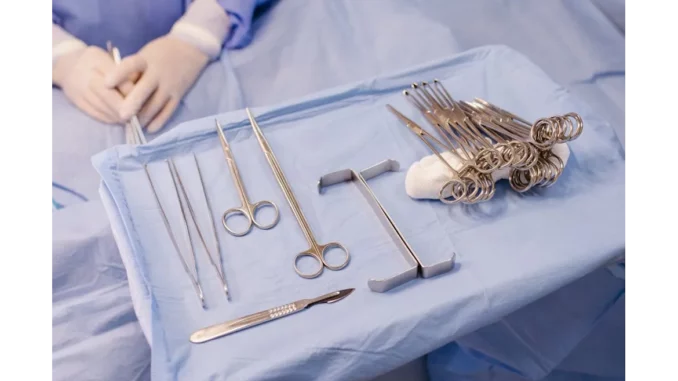
In the rapidly advancing realm of medical technology, the incorporation of artificial intelligence (AI) into surgical procedures signifies a pivotal breakthrough. A particularly noteworthy innovation is taking shape at the Orlando Health Jewett Orthopedic Institute, where AI is being harnessed to transform hip replacement surgeries. This pioneering development not only enhances surgical precision but also optimises patient recovery and post-operative mobility, thereby setting a new benchmark in orthopaedic care.
At the core of AI’s role in hip replacement surgery is its capacity to provide real-time feedback throughout the procedure. This is made possible via AI-enhanced X-ray technology, which aids surgeons in verifying the optimal positioning of hip implants. The precision enabled by this technology allows surgeons to make instantaneous adjustments, ensuring that the implant is positioned accurately to the degree and millimetre tailored to each individual patient. The implications of this precision are far-reaching. Historically, dissatisfaction with hip replacements has often been attributed to issues such as incorrect leg lengths and suboptimal biomechanics, leading to a diminished range of motion. AI technology effectively addresses these challenges by facilitating highly accurate simulation modelling and placement verification. This improvement not only enhances patient outcomes but also reduces the duration a patient spends under anaesthesia, thereby diminishing surgical risks.
Dr George Haidukewych, a prominent figure at the Orlando Health Jewett Orthopedic Institute, has been instrumental in the integration of AI into hip replacement surgeries. Specialising in total hip and knee replacements as well as orthopaedic trauma, Dr Haidukewych brings extensive expertise to this innovative approach. He highlights the transformative nature of AI technology, describing it as a “beautiful technology” that offers unparalleled accuracy and efficiency in surgical practice. Dr Haidukewych’s contributions to the field are widely acknowledged; he has been inducted into the prestigious International Hip Society, a select group of leading joint surgeons globally. His numerous peer-reviewed studies and patents underscore his dedication to advancing orthopaedic care.
The integration of AI into hip replacements primarily aims to elevate patient care. Through the utilisation of AI technology, the Orlando Health Jewett Orthopedic Institute strives to provide more personalised and effective treatment options. The capability to customise hip replacements to suit the specific needs and activities of patients, such as yoga or golf, exemplifies this patient-focused approach. Moreover, the efficiency of AI-assisted surgeries facilitates quicker recovery times. Patients often have the opportunity to undergo hip replacement surgery in the morning and return home before lunchtime, significantly reducing hospital stays and associated costs.
The incorporation of AI in orthopaedic surgery marks the dawn of a broader movement towards more technologically sophisticated medical procedures. As AI continues to evolve, its applications in healthcare are poised to expand, presenting new opportunities for improving patient outcomes and surgical precision. The Orlando Health Jewett Orthopedic Institute’s adoption of AI in hip replacements stands as a model for other institutions aspiring to enhance their surgical capabilities. By embracing innovation and prioritising patient care, the institute is ushering in a new era in orthopaedic surgery.
In summation, the deployment of AI in hip replacement surgeries constitutes a remarkable advancement in the field of orthopaedics. By furnishing real-time feedback and augmenting surgical precision, AI technology is revolutionising the methodology of hip replacements. The advantages for patients are evident: improved outcomes, decreased recovery times, and a more personalised approach to care. As the Orlando Health Jewett Orthopedic Institute continues to spearhead advancements in this domain, the future of orthopaedic surgery appears promising, with AI playing an increasingly central role in its evolution.


Be the first to comment